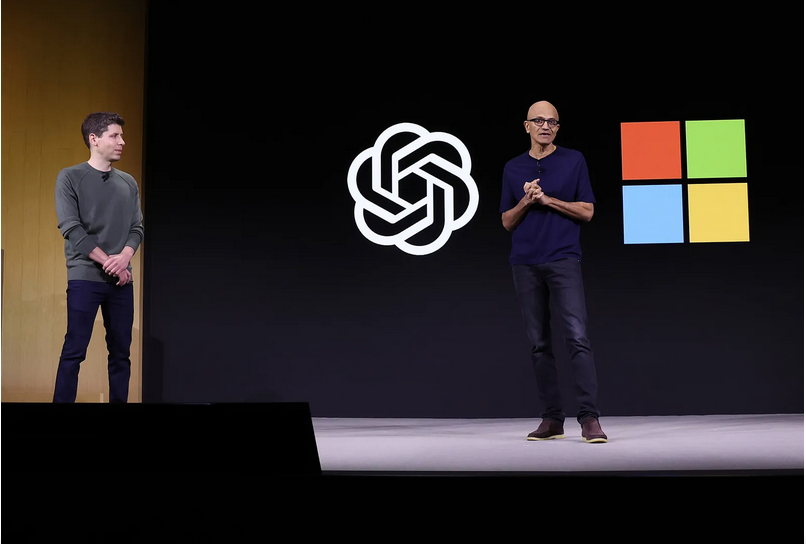
In a landmark lawsuit, a coalition of Canadian news companies has sued OpenAI, the developer of the popular AI chatbot ChatGPT, for copyright infringement and unfair competition. The lawsuit, filed in the Federal Court of Canada, alleges that OpenAI has been using copyrighted news articles and other content without permission or fair compensation.
Background of the Lawsuit
The lawsuit was filed by a group of Canadian news companies, including the Globe and Mail, the Toronto Star, and the National Post, among others. The news companies claim that OpenAI has been using their copyrighted content to train its AI models, including ChatGPT, without obtaining the necessary licenses or permissions.
The news companies also allege that OpenAI’s use of their content has caused significant financial harm, as it has reduced the value of their copyrighted works and deprived them of revenue. The lawsuit seeks damages, injunctive relief, and a declaration that OpenAI’s use of the news companies’ content is infringing.
OpenAI’s Response
OpenAI has responded to the lawsuit, stating that it has done nothing wrong and that its use of copyrighted content is protected by fair dealing provisions in Canadian copyright law. Fair dealing allows for the use of copyrighted material without permission for certain purposes, such as research, criticism, or news reporting.
OpenAI also claims that it has taken steps to ensure that its use of copyrighted content is fair and reasonable, including by providing attribution to the original authors and publishers of the content.
Implications of the Lawsuit
The lawsuit has significant implications for the future of AI and copyright law. If the news companies are successful in their lawsuit, it could set a precedent for other copyright holders to seek compensation from AI developers for the use of their content.
On the other hand, if OpenAI is successful in its defense, it could provide a green light for AI developers to use copyrighted content without permission or fair compensation.
Potential Impact on the AI Industry
The lawsuit could have a significant impact on the AI industry, particularly in the development of language models like ChatGPT. If AI developers are required to obtain licenses or permissions for the use of copyrighted content, it could increase the cost and complexity of developing AI models.
On the other hand, if AI developers are allowed to use copyrighted content without permission or fair compensation, it could lead to a proliferation of AI models that are trained on copyrighted material without the permission of the copyright holders.
Potential Impact on Copyright Law
The lawsuit could also have a significant impact on copyright law, particularly in the area of fair dealing. If the court finds that OpenAI’s use of copyrighted content is fair dealing, it could set a precedent for other cases involving AI and copyright law.
On the other hand, if the court finds that OpenAI’s use of copyrighted content is not fair dealing, it could lead to a re-evaluation of the fair dealing provisions in Canadian copyright law.
Conclusion
The lawsuit filed by Canadian news companies against OpenAI is a significant development in the area of AI and copyright law. The outcome of the lawsuit could have far-reaching implications for the AI industry, copyright law, and the future of content creation and dissemination. As the lawsuit makes its way through the courts, it will be important to watch for developments and to consider the potential impact on the AI industry and copyright law.
The lawsuit filed by Canadian news companies against OpenAI has sparked a significant debate about the use of copyrighted content in AI models. While the outcome of the lawsuit is still uncertain, there are several potential benefits that could arise from this legal action.
Protection of Intellectual Property Rights
One of the primary benefits of the lawsuit is the protection of intellectual property rights. The Canadian news companies are seeking to protect their copyrighted content from being used without permission or fair compensation. If the court rules in their favor, it could set a precedent for other copyright holders to seek protection for their work.
Fair Compensation for Content Creators
Another benefit of the lawsuit is the potential for fair compensation for content creators. If the court rules that OpenAI must pay for the use of copyrighted content, it could lead to a new revenue stream for content creators. This could be particularly beneficial for journalists, authors, and other creators who rely on their work being used and shared.
Promoting Transparency and Accountability in AI Development
The lawsuit could also promote transparency and accountability in AI development. By requiring OpenAI to disclose how it uses copyrighted content, the court could shed light on the inner workings of AI models and the data they rely on. This could lead to greater transparency and accountability in the development of AI models.
Encouraging Responsible AI Development Practices
The lawsuit could also encourage responsible AI development practices. By holding OpenAI accountable for its use of copyrighted content, the court could set a precedent for other AI developers to follow. This could lead to more responsible AI development practices, including the use of licensed content, transparent data sourcing, and fair compensation for content creators.
Supporting Quality Journalism and Content Creation
Finally, the lawsuit could support quality journalism and content creation. By protecting the intellectual property rights of content creators, the court could help to ensure that high-quality content continues to be created and shared. This could be particularly beneficial for journalism, which relies on the creation and dissemination of high-quality content to inform and engage the public.
Potential Risks and Challenges
While the lawsuit has the potential to bring about several benefits, there are also potential risks and challenges to consider. For example:
1. Chilling effect on AI development: The lawsuit could have a chilling effect on AI development, as companies may be less likely to invest in AI research and development if they are unsure about the legal implications of using copyrighted content.
2. Increased costs for AI development: The lawsuit could also lead to increased costs for AI development, as companies may need to pay for licenses or permissions to use copyrighted content.
3. Complexity of copyright law: The lawsuit highlights the complexity of copyright law, particularly in the context of AI development. The court’s decision could have significant implications for the interpretation and application of copyright law in the AI industry.
Conclusion
In conclusion, the lawsuit filed by Canadian news companies against OpenAI has the potential to bring about several benefits, including the protection of intellectual property rights, fair compensation for content creators, and the promotion of transparency and accountability in AI development. However, there are also potential risks and challenges to consider, including the chilling effect on AI development, increased costs for AI development, and the complexity of copyright law. As the lawsuit makes its way through the courts, it will be important to watch for developments and to consider the potential implications for the AI industry and copyright law.



